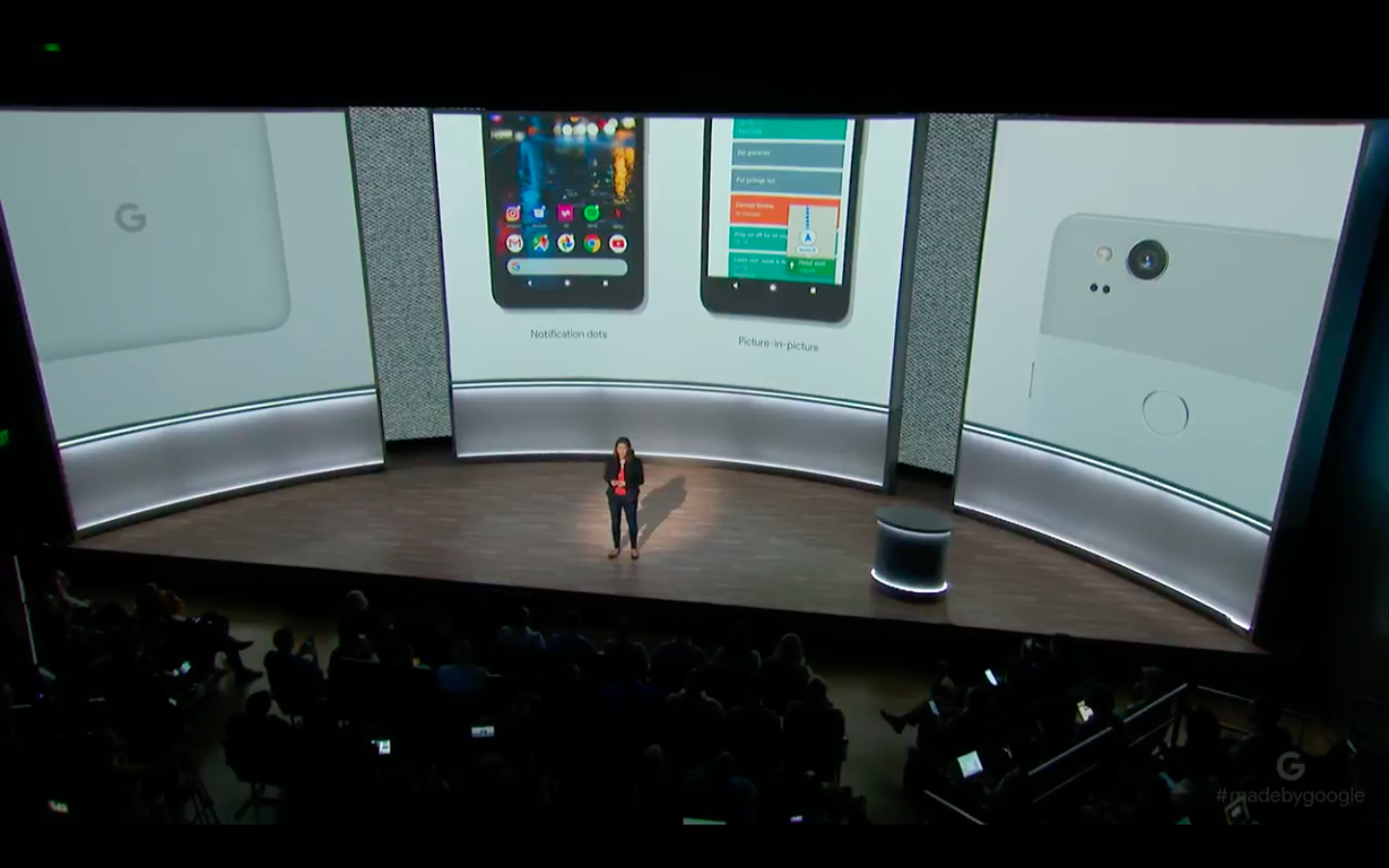Google has Pixel-perfect timing to advance in smartphones


These days, Google sees itself as the vehicle for extending not only Android but the AI-driven future beyond it.
The release of the Pixel 2 into a budding annual release cycle -- along with Google's purchase of a significant chunk of HTC -- shows that Google is serious about its own branded devices. This is true even as the "Made by Google" tagline represents the company's transition from being only an OS and services provider.
Google event
The motivation for the Pixel may have sprung from many sources, including a further check on Apple beyond what Samsung could provide or a check on Samsung itself, dissatisfaction with the partnership arrangements of the long-running Nexus effort, or as Google asserts, an opportunity to highlight imbue atoms with AI as Apple has historically imbued them with software.
But the timing of this attack on the high end of the smartphone market seems odd. Mid-tier phones provide a high-quality mobile experience vis-a-vis the state of the art. On the other hand, when it comes to flagships, the arguments of the day are boiling down to which company has extended the slimmest of phone body borders at the device's top or bottom. The cameras on flagships from Samsung, LG, and Apple run the gamut from incredible to amazing.
Even Face ID, the most radical advance of the iPhone X, simply provides a more sophisticated -- and presumably better-performing -- method of unlocking a phone by staring at it. But support for this behavior has been a feature in Android for years and extended by Samsung with iris-based biometrics. The same week that Apple showed off the iPhone X's signature authentication method in Cupertino, other companies were showing off similar technology in San Francisco at Mobile World Congress Americas. It's a sure bet that, just like slim bezels, they will propagate quickly.
On one hand, such a state of competitive near-parity would mark a high bar for a competitor entering the market. The camera on the Essential phone, for example, cannot capture the kinds of depth-of-field effects touted by Apple. This would appear to put Google (which has taken on the depth of field challenge head on for what it's worth) at a disadvantage in making much headway. Indeed, despite much attention, sales of the original Pixel were but a fraction of those of Samsung or Apple for a host of reasons.
On the other hand, with little strong competition to Samsung at the high end in most markets, Google has an opportunity to establish itself based simply on consumer familiarity. If Google is developing the software and many of the key services on the device, why not just get the device from Google all other things being, or at least approaching, equal? Samsung and LG don't have to fret too much just yet, because there are still key differences when it comes to brand association and particularly distribution. Google also has made a few traditionally Applesque omissions (wireless charging and microSD support) that many Android users in particular have come to expect.
Read also: Buying a Pixel 2? Here's what Google will give you | Closer look at Google's Pixel 2, Pixel 2 XL (pictures) | Google Pixel not so great: There are plenty of better business phones
To compensate, the search giant has thrown in a few nice service perks as an incentive such as full-quality backups of photos and videos on Google Photos. It can also offer early access to new versions of Android and new apps such as Lens. But while AI may be more behind the scenes in some of these services, what Google really has an opportunity to do is to build a foundation in this less-differentiated world for a more differentiated world of AI-driven smartphones and post-smartphone devices.
When Android was a baby a decade ago, Google needed to line up as many partners as it could to ensure its legitimacy and survival. But these days, Google sees itself as the vehicle for extending not only Android but the AI-driven future beyond it.
PREVIOUS AND RELATED COVERAGE
Google launches Pixel 2, Pixel 2 XL: AI first phones for $649, $849
https://www.zdnet.com/article/google-launches-pixel-2-pixel-2-xl-ai-first-phones-for-649-849/Google's bet is that smartphone hardware is a commodity and artificial intelligence will win the day. Can Google lead its hardware parade with Pixel 2 and Pixel 2 XL and compete with iPhone X and Samsung Note 8?
10 best smartphones: Can Google's Pixel 2 challenge rival flagships?
https://www.zdnet.com/article/10-best-smartphones/Apple and Google recently announced new 2017 phones, but even these phones can't surpass Samsung's latest Galaxy Note 8.
Google's Pixel 2 gets 3 years of Android updates: Will that sway iPhone waverers?
Are three years of Android OS updates enough to convince you to switch your iPhone for a Pixel 2?